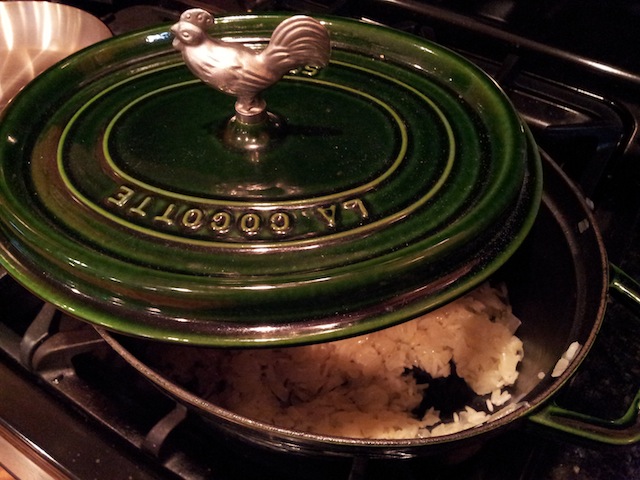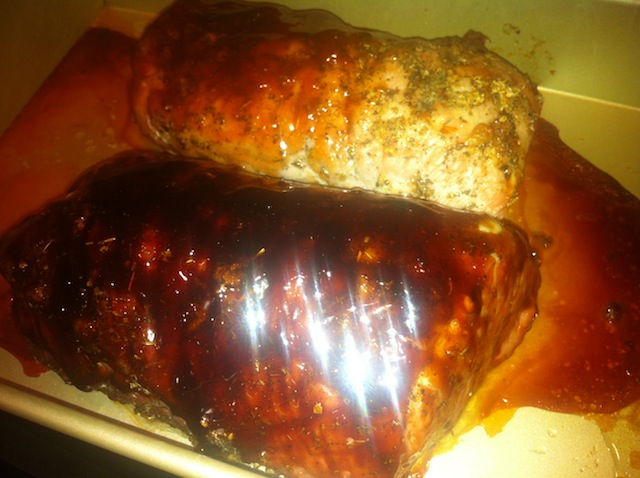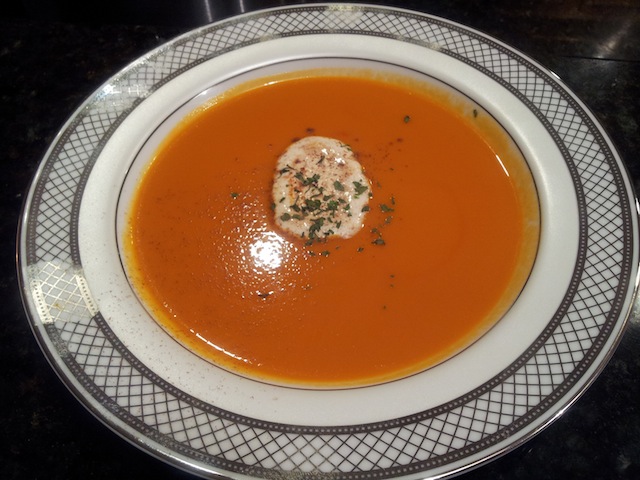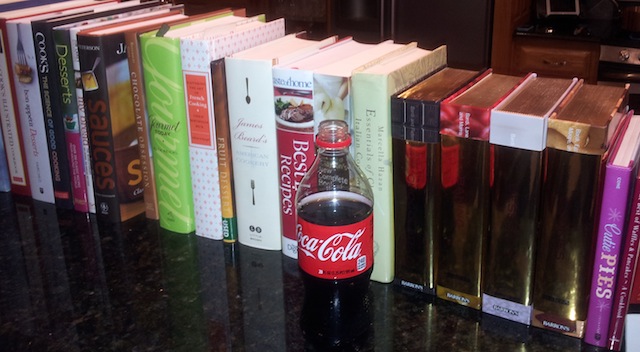If You Want to Master Investing, Here Is How It Is Done
This morning, at around 5 a.m., I was sitting in bed with a copy of Mastering the Art of French Cooking by Julia Child open in front of me, one hand holding a teal highlighter and the other a black ballpoint pen, frantically scribbling notes as I marked up my commentary on different instructions, techniques, and recipes, when out of nowhere, I had this sudden realization; like hitting a wall at high speed. I stopped writing mid-sentence and looked around me.
I’m doing it again.
Twice, before, in my life I have set my entire energy and efforts on mastering a particular area.
The First Time I Mastered a Discipline
The first began in 3rd and 4th grade with the stock market when I read and re-read every finance book I could get my hands on and began teaching myself the basic of GAAP accounting (things were different in those days – goodwill used to be amortized annually depending on the acquisition method used, and pharmaceutical companies often had understated earnings due to rules governing research and development expenditures). My parents indulged this odd hobby of mine, going so far as to honor my birthday request that year when all I wanted was a briefcase that I could use to hold my notes. (Yeah, I was an unusual kid.)
I became obsessed. I was unable to think about, care about, or focus on anything else.
I would draw diagrams of how fast I could grow my money, projecting out my future net worth. I would estimate how much capital it would take to provide me with a monthly private income sufficient to support the lifestyle I wanted without working. I would study different industries to understand them, and how they were connected to the broader civilization. It took me more than ten years, but one day, I walked into a Barnes & Noble and Aaron looked at me and said, “I see it on your face. There is now nothing you can learn from any of these books. You should be the one writing them.”
Actually, I still remember when it all “clicked”. It was like a lock pin falling into place in a heavy door. I was sitting by myself on Nassau Street in Princeton, New Jersey at the Panera Bread shortly before it was dark outside (twilight – barely any light at all). I had a cup of coffee and was reading a book. Suddenly, I got it. It was a life changing moment. It was like my brain opened up and everything I had been reading for years made sense.
The Second Time I Mastered a Discipline
The second began in my late teenage years, when I poured myself into music, eventually going to university on a classical music performance scholarship that resulted in me spending four years of my life immersed in operas, great composers, music theory, piano practices, harpsichord concertos, and solo concerts of German art songs. I performed on stage in Lincoln Center, toured with choirs throughout the United States, interned at Warner Music Group, studying contracts and pay scales to understand the compensation system, and even developed a significant body of my own work. Even now, hardly a week goes by when you won’t find me sitting behind a piano crafting chords or toying with techniques.
Now, I am On My Third Major Area of Study in My 30 Years of Life
In both cases, it wasn’t until years into the process that I realized that not only had I reached a level of mastery of the subjects that far exceeded what was considered “normal”, but that I did it without really knowing I was doing it. There had been no grand plan, just an insatiable fire that couldn’t be quenched until I felt like I understood every aspect of the subject.
And it’s happening again. It’s been happening for two years. Aaron and I have rearranged our entire lives, spent tens of thousands of dollars on the best cookware imported from throughout the world, and pay no attention to the thousands of dollars a month in wasted food it takes to test recipes. Recently, I ordered a copy of nearly every one of the greatest cookbooks throughout history, including some rare out of print editions that are being shipped in from across the country, and I am spending 15+ hours a day reading through, studying, analyzing, comparing, and contrasting them.
This afternoon, I tested a Soubise by adding sautéed chicken, trying to find ways to turn what would be an excellent side dish into a primary entrée. And I loved every minute of it. It wasn’t work. It was fun.




That’s the great secret. I’m not working. I’m not exerting effort. I’m in love with the work that is on my desk. I’d pay to be able to do it.
It doesn’t matter what anyone says, it doesn’t matter how anyone else feels about it, it is an absolute certainty that, short of some unforeseen event, ten years from now, I will be able to sleepwalk into any kitchen in the world and recite Escoffier as I made one of his dishes. I know myself. That is the end game.
It’s happening, again.
The Best Experts Throughout All of History Are There to Hold Your Hand
So many people write me and say, “But how did you know how to start? I don’t understand if no one was there to guide you.”
The greatest minds throughout all of history are there to guide you. They left their orchestrated, carefully documented thoughts on paper for you to follow. Read everything about the subject, and then take action. Test the theories. Book knowledge isn’t enough, you need to actually do it. Experience it. Get the muscle memory of it. Know how it feels. You can read about golf all you want, but it is a different thing entirely to be on the course as the sun comes up, surrounded by the smell of fresh grass perfuming the air, and seeing the glisten of dew gleaming off the fairways.
As a kid, I tracked down Benjamin Graham’s old letters to his investors to understand the compensation system he used. There wasn’t an Internet or Google back then. You had to write letters to people or find them in real life. Everything can be done. It’s simply a matter of if you love the area of study enough or not. Graham had been long dead before I was born, but he was able, in a way, to reach beyond the grave and teach me what I needed to know about one possible incentive structure for asset managers. You pick up enough of this, and tie it all together in your mind, things start making sense.
Julia Child can teach you to cook. Philip Fisher can teach you what to look for to identify the type of excellent business that can make your family rich for generations. Philosophers, historians, artists, and theologians have left bodies of work that you can use at your pleasure. You can accept, reject, adapt, or modify their findings based on your own analysis of the evidence. You don’t have to start from scratch. The work has already been done for you!

Mastery Comes When Book Knowledge Meets Experience
If you are young, you need to find the area you want to study and do the same thing. Nearly everything I learned about investing, finance, and business happened exactly like the cooking process you are watching now. I didn’t know how to start a company. I became obsessed and figured it out until it worked. I didn’t know how to analyze the chord structure of a symphony. I became obsessed and carried around copies of Haydn scores for years until I could do it with my eyes closed.
Do it. If you want to master investing, get your hands on every annual report, the best accounting textbooks, every shareholder letter to mutual fund holders, every historical financial study, and every piece of long-term data you can. Look at the relationships. Study it forwards and backwards until you can break it down into the component parts and it all makes sense; you see how it fits together. You need to see a business and not think of “profitability” but instantly be working through the components of Return on Equity from a DuPont analysis point of view. Smash it into the simplest, most basic, most fundamental parts you can. Then put it all back together. If I give you the leverage and asset turn of a company, you should be able to deduce what the profit margins are without ever seeing the income statement. That’s how fluent you need to be in the relationship dynamics of the variables that comprise the entire system.
Find your area of life and then go for it. There are so many interesting things to learn, I can’t imagine confining myself to a single field. My heroes are men like Voltaire and Benjamin Franklin, who were interested in different areas of study. Start with one, and in five to ten years, you should have it mastered. The upshot is that most disciplines are cumulative – if you learn cooking, painting, music, or gardening, it’s hard to “unlearn” it – whereas if you learn computer programming, the skill set might not hold for a decade. (I prefer cumulative endeavors. That’s my personality. I started with finance because it allowed me to self-fund everything that came later.)
Pick a few areas and master them. It can improve the quality of your time on this planet exponentially. Do you know how awesome it is that if I want to hear a Mozart piece, I just go play it? Or if I want artisan French breads, I just bake it? I couldn’t do those things fifteen years ago. Everybody starts somewhere. Everybody has to learn their craft. You are no different.
This is how it’s done. Combine as much book knowledge with enough deliberate, systematic experience as you can. Improvement is the by-product.
Identify the life you want, and the skills it takes to have that life. Then, go develop them. I’ve said it before but it is true: Life is a video game and skills are just the level ups. Pick a skill tree and master it. Tiny, small gains, day after day, years on end, result in massive end results. It’s the nature of compounding.
Be willing to look foolish. Admit that you know nothing. Ask every intelligent question you can imagine. Forget your pride. Be fearless. The rewards of success are fantastic. If you love the process, it won’t be work.

